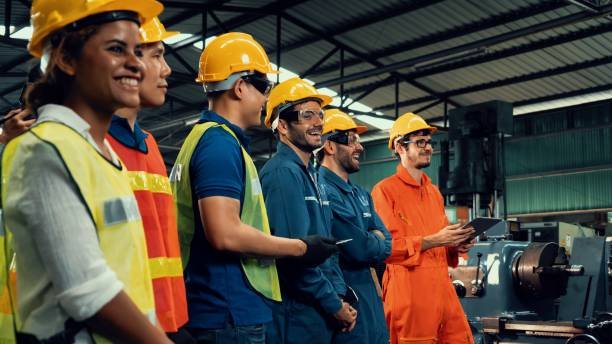The Difference Between Trade Unions and Workplace Forums:
Trade unions and workplace forums are two common mechanisms for employee representation and collective bargaining in many organizations. While both aim to protect and promote the interests of workers, they differ in their structure, scope, and functions. This article explores the key distinctions between trade unions and workplace forums, highlighting their respective roles and contributions in the realm of labor relations.
The Difference Between Trade Unions and Workplace Forums
The difference between trade unions and workplace forums lies in their scope, structure, and functions. Trade unions operate at a broader level, representing employees across industries, engaging in collective bargaining, political activities, and strikes. Workplace forums, on the other hand, are internal bodies within individual organizations, facilitating communication, consultation, and problem-solving between employees and management.
Trade Unions
Trade unions are formal organizations formed by workers to protect their rights and advance their interests in the workplace. They operate at a broader level, typically representing employees across multiple organizations or industries. Trade unions are usually independent entities and are often legally recognized. They have a hierarchical structure, with elected officials and representatives who negotiate with employers on behalf of their members. Key features of trade unions include:
- Collective Bargaining: Trade unions engage in collective bargaining with employers to negotiate better wages, working conditions, benefits, and other employment terms. They have the authority to negotiate and sign collective agreements.
- Advocacy and Representation: Trade unions represent the interests of their members, providing support, legal advice, and representation in matters related to employment disputes, grievances, disciplinary actions, or layoffs.
- Political Engagement: Trade unions often engage in political activities to influence labor laws, government policies, and social issues that affect workers’ rights. They may endorse or support political candidates who align with their objectives.
- Strike Action: Trade unions may resort to strike action or other forms of industrial action to exert pressure on employers during disputes or to achieve their goals. Strikes are often a collective decision made by union members through a voting process.
Workplace Forums
Workplace forums, also known as employee representative councils or joint consultative committees, are internal bodies established within individual organizations. They provide a platform for employees and management to discuss work-related matters, exchange information, and address concerns collectively. Key characteristics of workplace forums include:
- Employee Representation: Workplace forums consist of elected or appointed representatives from the workforce who act as a liaison between employees and management. They serve as a channel for communication, raising employee concerns, and conveying management decisions.
- Information Sharing: Workplace forums facilitate the sharing of information between management and employees regarding organizational policies, changes, and decisions that may impact the workforce.
- Consultation and Participation: Workplace forums provide a forum for employees to participate in decision-making processes that affect their working conditions, such as changes in policies, work schedules, or the introduction of new initiatives.
- Problem-Solving and Conflict Resolution: Workplace forums serve as a platform to address and resolve workplace issues and conflicts through dialogue and negotiation between employee representatives and management.
Conclusion
While trade unions and workplace forums both play a vital role in protecting and representing employees’ interests, they differ in their scope, structure, and functions. Trade unions operate at a broader level, representing employees across industries and engaging in collective bargaining, political activities, and strikes. On the other hand, workplace forums are internal bodies within individual organizations, facilitating communication, consultation, and problem-solving between employees and management. Understanding these distinctions can help employees and organizations determine the most suitable mechanism for collective representation and engagement in their specific contexts.






